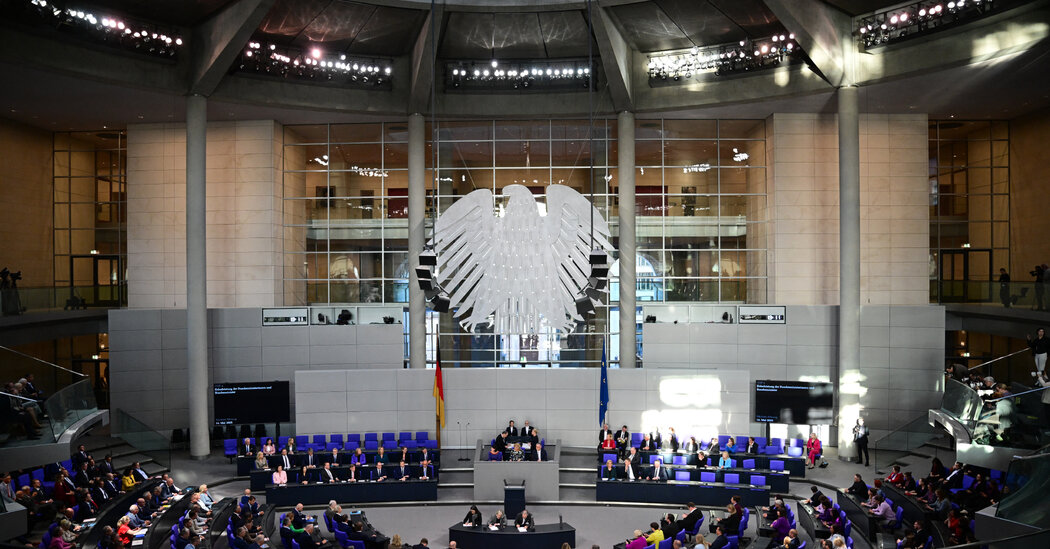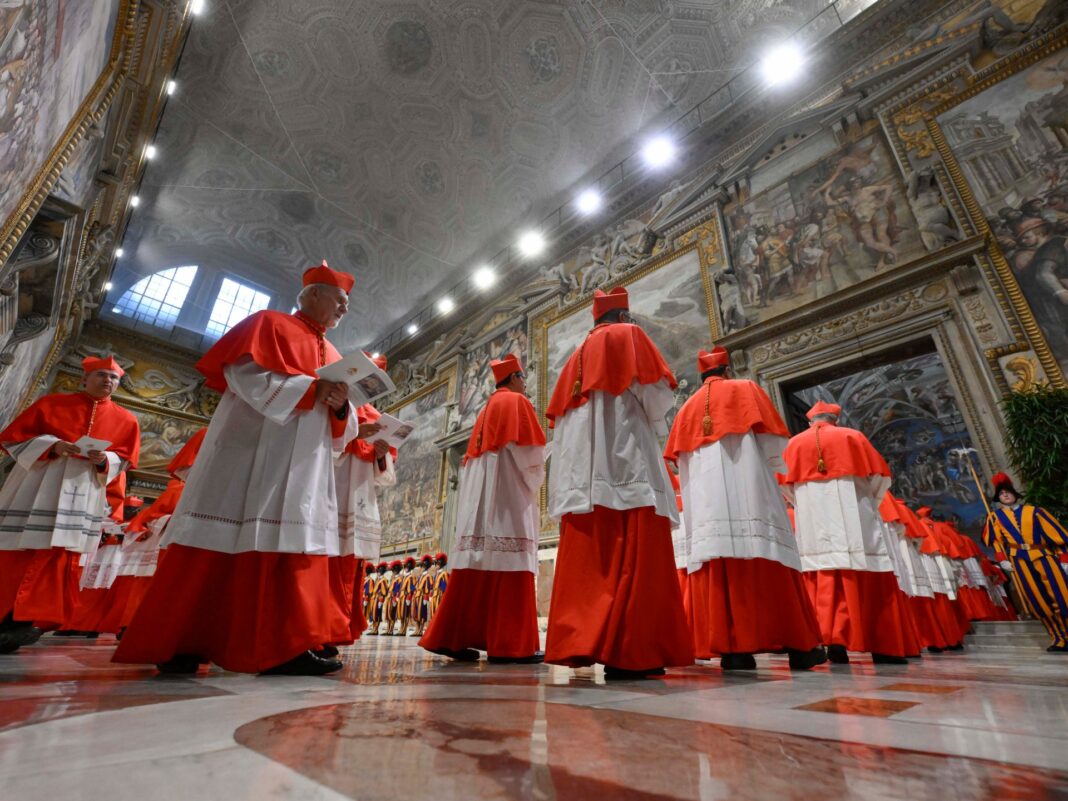Ever since the German Parliament building reopened in Berlin in 1999, its second-largest meeting room has been occupied by what had often been Germany’s second-largest party, the Social Democrats.
Even the room’s name, the Otto Wels Hall, bears the party’s imprint: Wels led the Social Democrats from 1919 until the Nazis drove him to exile.
Now, following their disastrous performance in February’s federal elections, the Social Democrats may lose the room to the far-right Alternative for Germany, or AfD, which came in second and insists that, by the rules of the Parliament, it should get the room instead.
The fight over the Wels Hall is just one in a series of challenges facing the Social Democrats and their senior partners in the incoming governing coalition, the center-right Christian Democrats, as they prepare to confront the AfD.
Most important, they are considering how to deal with a party that is both politically toxic and yet powerful enough to undermine the coalition’s agenda.
Heightening the tensions was a decision on Friday by Germany’s domestic intelligence service declaring the AfD an extremist organization. (On Thursday the service said that it would refrain from describing the party as extremist, pending a decision in a lawsuit filed by the AfD on Monday, though it did not rescind its decision.)
And on Tuesday, Friedrich Merz, leader of the Christian Democrats, was initially two votes short of winning approval as Germany’s new chancellor (though he gained enough support later). That stumble raised questions about his ability to confront the AfD as he and his allies consider whether to call on Germany’s constitutional court to ban the right-wing party.
The AfD has gained support in recent years with an anti-establishment campaign and rails against migrants and refugees. In recent months, it has been polling alongside Mr. Merz’s center-right Christian Democrats.
But actually banning the party would be an extensive legal process. The AfD’s lawsuit will have to be resolved before any formal procedure by Parliament and the constitutional court can begin.
Those maneuvers mean that for the next few years, the ruling coalition must work alongside, if not necessarily with, the AfD in Parliament.
Unlike in the winner-takes-all U.S. Congress, the leading opposition party in Germany, by tradition, is usually accorded a number of committee chairmanships and leadership roles that help guide the Parliament.
Until Friday’s announcement by the intelligence service, the Christian Democrats had split between those who wanted to hand some roles to the AfD, and those who wanted to quarantine them — for example, by refusing to work with them on legislation.
Jens Spahn, who leads the Christian Democrats in Parliament, argued that the quarantine option would fuel the AfD’s image as a victim of a hypocritical establishment that only purports to defend democracy — a charge that the AfD reiterated on Friday, as did Secretary of State Marco Rubio.
“The AfD will continue to defend itself legally against these defamations that endanger democracy,” said Alice Weidel and Tino Chrupalla, co-chairs of the AfD, in a statement.
But Friday’s decision makes Mr. Spahn’s approach unthinkable to many Christian Democrats, not to mention Social Democrats or the smaller left-wing parties such as the Greens.
Several members of the Christian Democrats immediately called for a ban, and even Mr. Spahn, in a social media post, wrote, “We will not recommend electing AfD members as committee chairs.”
For now, the coalition and the governments of several states led by the Christian Democrats and the Social Democrats are considering other options. The extremist designation may allow them to restrict public funding for the AfD; it also opens the possibility of removing AfD members from civil-service positions.
But those options come with their own risks, including more legal action.
And while the AfD has been boxed out of any formal role in Parliament, its size means it can still cause immense pain for the coalition — just witness the failed first vote for Mr. Merz as chancellor on Tuesday.
Mr. Merz will be governing with a narrow 12-member majority. That means every vote will require near-unanimity across a left-right coalition defined more by political expediency than shared agendas.
“The discipline of the governing coalition must be very good,” said Johannes Hillje, a German political consultant.
Opportunities for mischief abound. The AfD could, Mr. Hillje suggested, introduce legislation copied from the Christian Democrats’ playbook, rendering it toxic. Or they could peel off members from either party with amendments to must-pass proposals.
“They want to make the other parties look stupid,” Mr. Hillje said. “This is the kind of games they do all the time.”
Some observers fear that as Parliament settles into a new, uncomfortable normal and as rifts inevitably open among the coalition, the temptation will arise for the Christian Democrats to find ways to work with the AfD — which has similar views on aspects of spending and immigration policy.
Much will depend on whether the AfD continues to grow in the polls and whether it strengthens its control in state-level elections, several of which are scheduled in the coming year.
Maximilian Steinbeis, founder and editor of Verfassungsblog, a website focused on constitutional law said there was a temptation for the Christian Democrats to profit from a right-wing majority.
“This temptation,” he added, “is super powerful.”

